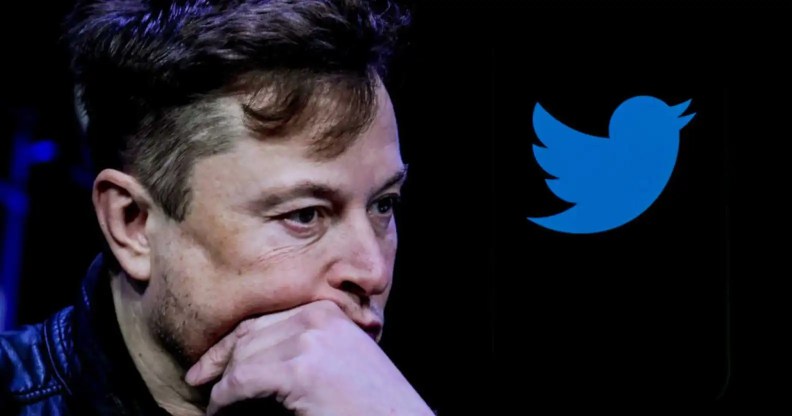All major social networks failing to keep LGBTQ+ people safe from hate, study finds

A GLAAD report found Twitter was the most dangerous for LGBTQ+ people. (Credit: Getty Images)
The top five social media platforms are all failing to protect queer people, according to research by leading queer advocacy organisation GLAAD.
GLAAD’s research found that Twitter was the most dangerous platform for LGBTQ+ people.
The organisation has released its third annual Social Media Safety Index (SMSI). The study looks at user safety and was launched in 2021 to tackle anti-LGBTQ hate online.
Its 2023 report gave Twitter, Facebook, Instagram, YouTube and TikTok all low and failing scores.
It’s the second year in a row with such results, despite four platforms seeing improvements in their scores, except for Twitter, which got worse. The GLAAD scorecard is based on 12 LGBTQ-specific indicators, including things like policy commitments to protect LGBTQ users, the option to add pronouns to profiles, and prohibiting advertising content that could be harmful or discriminatory to LGBTQ people.
In the report, GLAAD said: “It cannot be stated strongly enough that social media platforms must take substantive, meaningful, and far more aggressive action to prioritise the safety of the LGBTQ users and to combat the spread of hate and extremism.”
Instagram had a 15 point increase on the SMSI Platform Scorecard to 63 (of 100), with GLAAD singling out Meta’s adoption of prohibiting targeted misgendering, and other Meta brand Facebook had the second highest score with 61.
GLAAD recognised TikTok (with a 14 point increase to 57) for being the only platform included in the report that protects people from both targeted deadnaming and misgendering, as well as the only company to disclose how it detects violations of this policy.
Twitter saw a 12 point decrease from its 2022 score, down to 33. GLAAD singled out the company’s hateful conduct policy which no longer prohibits against targeted deadnaming and misgendering, and that the company no longer publishes a diversity report disclosing data on its LGBTQ+ workforce.
In terms of mitigating hateful content, the report stated the social media platforms “could choose to protect LGBTQ people (and everyone, really) from the high-follower accounts which post dangerous and consequential anti-LGBTQ hate … but they don’t”.
“They actively and intentionally decide thousands of times a day to interpret such material as being allowable.” GLAAD said, adding that by doing so “steadily dilutes” the purpose of hate speech policies.
In a letter from GLAAD president and chief executive Sarah Kate Ellis, published in the report, Ellis said: “Viral dehumanising anti-LGBTQ content on these platforms negatively impacts public understanding of LGBTQ people – driving hatred, and even violence, against our community,” also noting that LGBTQ people are in a period of being “under attack”.
In a separate statement, the organisation’s social media safety senior director, Jenni Olson, said there was an “urgent need for effective regulatory oversight of the tech industry” to protect LGBTQ people.
“The status quo in which anti-LGBTQ hate, harassment, and malicious disinformation continue to flow freely on their platforms compounds an already-dangerous reality for LGBTQ, and especially trans and non-binary, people online and offline.”
In response to the report, YouTube spokesperson Jack Malon told PinkNews the company appreciated “the thoughtful feedback from GLAAD”.
He said YouTube had made “significant progress in our ability” to quickly remove content promoting violence or hatred toward LGBTQ+ people. “We remain committed to this important work.”
PinkNews has also contact Meta, TikTok and Twitter for comment.
Since Elon Musk took over Twitter, its press office email address responds to inquiries solely with a poop emoji.
How did this story make you feel?

